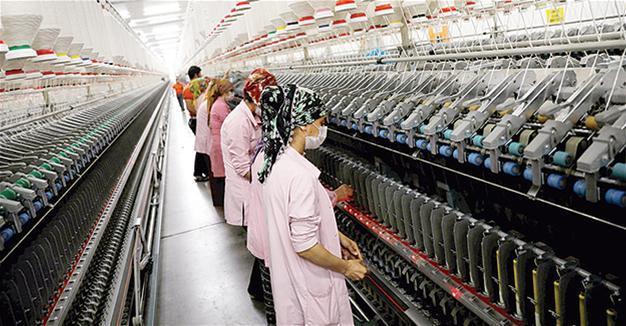German row puts Turkish clothing export target in jeopardy
ISTANBUL - Reuters
 Turkey’s clothing sector, a main driver of its foreign sales, may miss this year’s export target if a row with Germany is not resolved, a leading manufacturer said on July 25.
Turkey’s clothing sector, a main driver of its foreign sales, may miss this year’s export target if a row with Germany is not resolved, a leading manufacturer said on July 25.Despite signs of a sales turnaround to other countries, some German buyers have cancelled trips to Turkey after a rise in political tension between the NATO allies, Turkish Clothing Manufacturers Association Chair Şeref Fayat said.
That may make it hard to match exports of $17 billion in 2016 which were already about $1 billion short of an initial target due to the attempted military coup of last July.
Relations between Turkey and Germany deteriorated after Turkey arrested 10 rights activists, including a German, three weeks ago as part of a wider security crackdown.
“Exports were hampered by last year’s coup attempt, which continued into the first and second quarters of the year. But it has started picking up in July, and we’ve made a really good start to the second half,” Fayat told Reuters.
“Unfortunately some German companies have canceled their visits recently. Germany is the biggest export market for ready-to-wear clothing, and we hope that the political rift does not cause a reverse in the positive trend,” he said.
Fayat’s group represents some 35,000 mainly small companies and factories, nearly half of which are export-focused.
Ready-to-wear clothes constitute Turkey’s second largest export sector after automotive and Fayat said the European Union buys more than 70 percent of Turkish clothing exports, with $2.5 billion worth going to Germany.
In the first six months of the year, Turkey’s total exports increased by 8.2 percent, while ready-made clothing and apparel exports fell by 5.8 percent to $8.2 billion. Data for the first half of July suggest clothing sales are picking up, Fayat said.
“We may not be able to achieve our annual export projection for the year if the expected improvement doesn’t take place with our biggest customer Germany,” he added.
The domestic market has picked up after an April referendum, Fayat said, and is expected to grow to close to 10 percent in 2017 to over 60 billion liras ($16.84 billion).
















